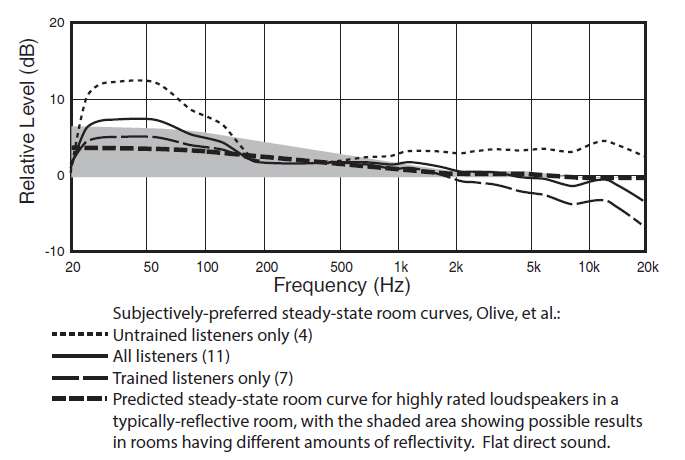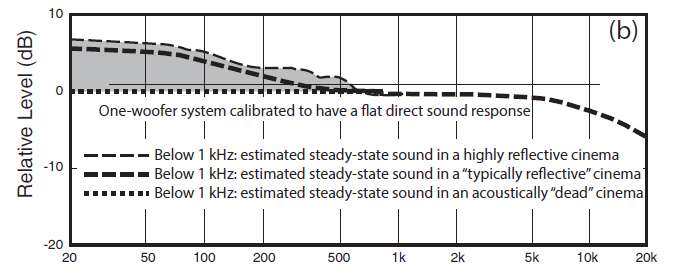I can tell a lot about how much I would enjoy listening to an audio system based on how it measures in a frequency response chart. For example, I know from experience that a flat frequency response will sound weak in the low end and too bright in the high end. Harman has studied what sounds good to most listeners in a typical room, and a smooth frequency response with a low end lift and a high end roll off usually sounds best. I can set whatever target curve I want in my audio processor and I've found that my preferences are in line with what Harman recommends:
---
A quality audio system
should measure well in its frequency response, because that will tell you how accurate it is at reproducing music or whatever you are listening to. Beyond house curve preferences, if you have nulls or large peaks at certain frequencies, then your music will not be reproduced accurately. That's a problem that may take acoustic treatments, DSP / room correction, or multi-subs to solve. If you haven't taken the time to measure your FR, then you really don't know what the problems are in your system. Identifying the problems is the first step to fixing them.
That said, having a good frequency response does not tell the whole story. Listening tests are ultimately what needs to be satisfied to reach one's "happy place". Frequency response charts are just a tool to help you reach that happy place.








